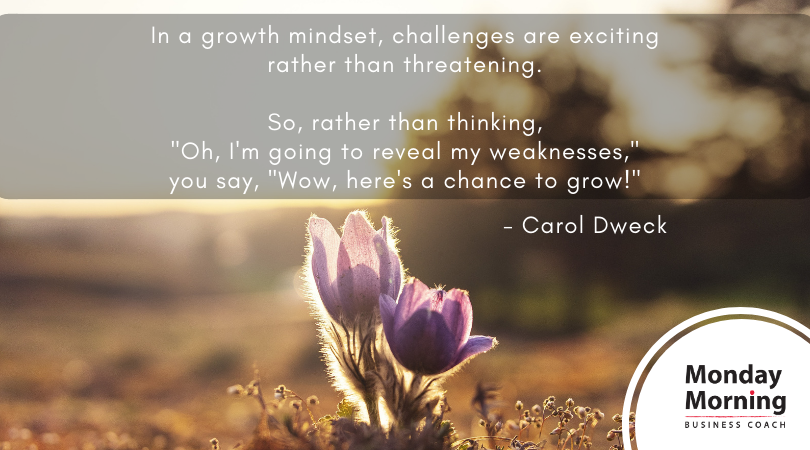In 2006, Carol Dweck first published Mindset: The new psychology of success (New York: Random House). In 2012, she updated that book in Mindset: How you can fulfill your potential* (Constable & Robinson Limited).
So, while the idea of two distinct mindsets is not new, we’re currently hearing from the leaders we work with that they’re learning about the importance of a growth mindset but aren’t really sure what it means and how to apply it in their work settings.
From our perspective, people who have a growth mindset believe that all people—they themselves and others in their lives—can learn, grow, and become more intelligent with time and experience.
A fixed mindset, on the other hand, is the belief that people are what they are. They can’t learn, grow, or change much . . . so what you see is what you get.
As you can imagine, if you have a growth mindset, you approach your own learning and feedback from others very differently than if you believe who you are today is fixed and that your mistakes are proof you can’t succeed in a particular area.
Similarly, how you approach others is dramatically different if you believe at your core that everyone can learn and grow with time and experience versus assuming they can’t change or grow.
Having a growth mindset in an organization is important to success.
In our work, we’ve found that a growth mindset comes to life in a culture of leadership and engagement, where leaders value the contributions of all members of their staff and are open to learning and growing from interactions with them. Every single person claims their leadership, believing they can learn, grow, and own success, regardless of their role or title.
In many ways, a growth mindset is at the core of our definition of leadership:
“Leadership is the
willingness to influence your world
and the willingness to be influenced by your world,
regardless of role or title.”
Growth mindset is a deep belief that you’re always learning, growing, and changing and the deep belief that others can learn, grow, and change. This approach helps to create great leadership and fosters the loop of influencing and being influenced by.
This week, observe yourself to see if you have a growth mindset or if you tend to believe that you and others can’t change or grow.
If you were lucky enough to be born into a family with parents who have a growth mindset, this way of being may be quite natural to you. If you didn’t, never fear, you can move toward a growth mindset!
With support, you can open yourself to invite learning from others through their feedback to you—which you can come to welcome and appreciate—and through their contributions, wisdom, and perspectives.
You can move towards the belief that learning, growth, and skill development is possible for all of the people you work with.
Next week we’ll spend some time considering how to nurture a growth mindset in yourself, others, and your organization.
*Please note, as an Amazon Associate we earn from qualifying purchases.
putting a growth mindset into practice,
contact us today about our Executive Coaching.


